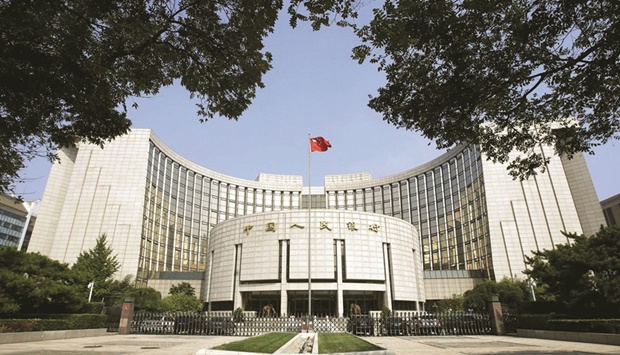China’s monetary policy will continue to be accommodative to support economic recovery, People’s Bank of China governor Yi Gang was quoted by state media as saying.
China’s real interest rates are pretty low considering inflation, Yi told the state-run broadcaster China Global Television Network (CGTN) in an interview.
“This year, we face some downward pressures of growth due to Covid-19 and external shocks, and the monetary policy will continue to be accommodative to support economic recovery in aggregate sense,” Yi said a transcript of the interview posted on the central bank’s website. “At the same time, we also emphasise structural policies such as supporting small- and medium-sized enterprises and green transition.”
CGTN said the interview was conducted recently.
China’s inflation outlook is stable, and the central bank will prioritise price stability and employment, Yi said.
Recent data suggested activity in the world’s second-largest economy is beginning to recover in some sectors after widespread Covid-19 lockdowns in April and early May, but headwinds persist.
The PBoC has pledged to step up support for the slowing economy, but analysts say the room to ease policy could be limited by worries about capital outflows, as the US Federal Reserve raises interest rates.
China’s outstanding green loans exceeded 18tn yuan ($2.69tn) as of March, while outstanding green bonds reached about 1.3tn yuan, Yi said.
China, the world’s biggest producer of climate warming greenhouse gases, has pledged to bring its emissions to a peak before 2030 and to become carbon neutral by 2060.
China will promote its climate information disclosure and guard against various “moral hazards”, such as green-washing, low-cost fund arbitrage, and green project fraud, Yi said.
“To promote better management of climate risk, the People’s Bank of China conducted the first climate risk stress testing last year, where the biggest challenge was insufficient information disclosure,” Yi said.
“Therefore, information disclosure and strict supervision are needed when we design and implement green monetary policy tools.”
The central bank has issued low-cost loans to financial institutions to promote green transitions, and has stress-tested lenders for climate change risk.

The PBoC headquarters is pictured in Beijing. The bank has pledged to step up support for the slowing economy, but analysts say the room to ease policy could be limited by worries about capital outflows, as the US Federal Reserve raises interest rates.
